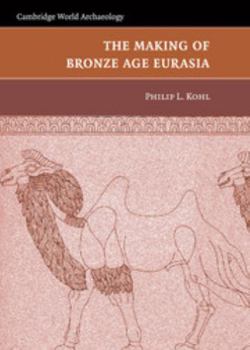The Making of Bronze Age Eurasia
(Part of the Cambridge World Archaeology Series)
Select Format
Select Condition 
Book Overview
This book provides an overview of Bronze Age societies of Western Eurasia through an investigation of the archaeological record. Philip L. Kohl outlines the long-term processes and patterns of interaction that link these groups together in a shared historical trajectory of development. Interactions took the form of the exchange of raw materials and finished goods, the spread and sharing of technologies, and the movements of peoples from one region to another. Kohl reconstructs economic activities from subsistence practices to the production and exchange of metals and other materials. He also examines long-term processes, such as the development of more mobile forms of animal husbandry, which were based on the introduction and large-scale utilization of oxen-drive wheeled wagons and, subsequently, the domestication and riding of horses; the spread of metalworking technologies and exploitation of new centers of metallurgical production; changes in systems of exchange from those dominated by the movement of luxury goods to those in which materials essential for maintaining and securing the reproduction of the societies participating in the exchange network accompanied and/or supplanted the trade in precious materials; and increasing evidence for militarism and political instabilities as reflected in shifts in settlement patterns, including increases in fortified sites, and quantitative and qualitative advances in weaponry. Kohl also argues forcefully that the main task of the archaeologist should be to write culture-history on a spatially and temporally grand scale in an effort to detect large, macrohistorical processes of interaction and shared development.
Format:Hardcover
Language:English
ISBN:052184780X
ISBN13:9780521847803
Release Date:January 2007
Publisher:Cambridge University Press
Length:322 Pages
Weight:1.62 lbs.
Dimensions:0.8" x 7.2" x 10.2"
Related Subjects
Ancient Archaeology Asia Eastern Europe History Politics & Social Sciences Social Science Social SciencesCustomer Reviews
0 rating





